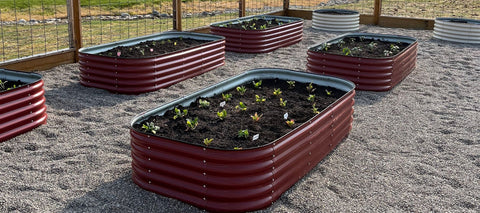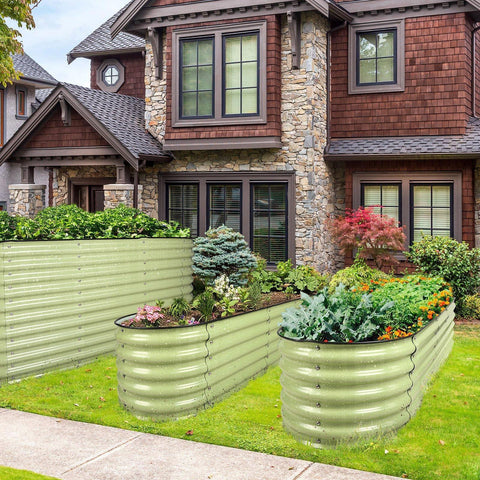Preventing Soil Compaction in a Metal Garden Bed
Metal garden beds are a popular choice in modern gardening, prized for their durability and aesthetic appeal. However, when using metal garden beds, there is a potential issue that needs to be addressed – soil compaction. Soil compaction occurs when the soil loses its ideal air circulation and water retention capacity, becoming dense and compacted. Fortunately, there are several methods to help prevent soil compaction and ensure healthy plant growth in metal garden beds.
First and foremost, a key step is to incorporate organic matter into the metal garden bed. Organic materials such as compost, leaf mulch, and animal manure are nutrient-rich and can improve the soil structure and water-holding capacity. Mixing these organic materials into the soil helps increase fertility and moisture retention, reducing the risk of soil compaction.
Secondly, proper irrigation and water management are crucial in preventing soil compaction. Metal garden beds usually have good drainage systems, preventing waterlogging and excess moisture. However, during dry seasons, plants still require an adequate water supply. It is recommended to use drip irrigation or misting systems to ensure even distribution of water around the plant roots, avoiding surface dryness or over-saturation of the soil.
Thirdly, regular loosening of the soil is an important measure to prevent compaction. The soil in metal garden beds tends to become compacted, especially with frequent walking or planting. Regularly using a rake or hoe to gently cultivate the soil surface improves its aeration and water penetration. Additionally, adding soil amendments like vermiculite or perlite can further enhance soil structure.
Furthermore, selecting appropriate plants is also a crucial factor in preventing soil compaction. Different plants have varying growth requirements, including soil type and moisture needs. Choosing plants that are adapted to the local climate and soil conditions in the metal garden bed can reduce the risk of soil compaction. Additionally, practicing crop rotation by alternating different types of plants can also effectively minimize soil depletion.
Lastly, regular fertilization is essential for maintaining soil health. Proper fertilizers provide necessary nutrients to plants while improving soil texture. Opting for organic fertilizers like fish meal, bone meal, or well-aged compost can supply the required nutrients to plants and promote soil health.
In conclusion, soil compaction in metal garden beds can be prevented through simple yet effective methods. Adding organic matter, practicing proper irrigation and water management, regular soil cultivation, selecting suitable plants, and regular fertilization are key steps in maintaining soil health and preventing compaction. By implementing these measures, we can ensure thriving plant growth in metal garden beds, creating a beautiful and enjoyable gardening environment.


